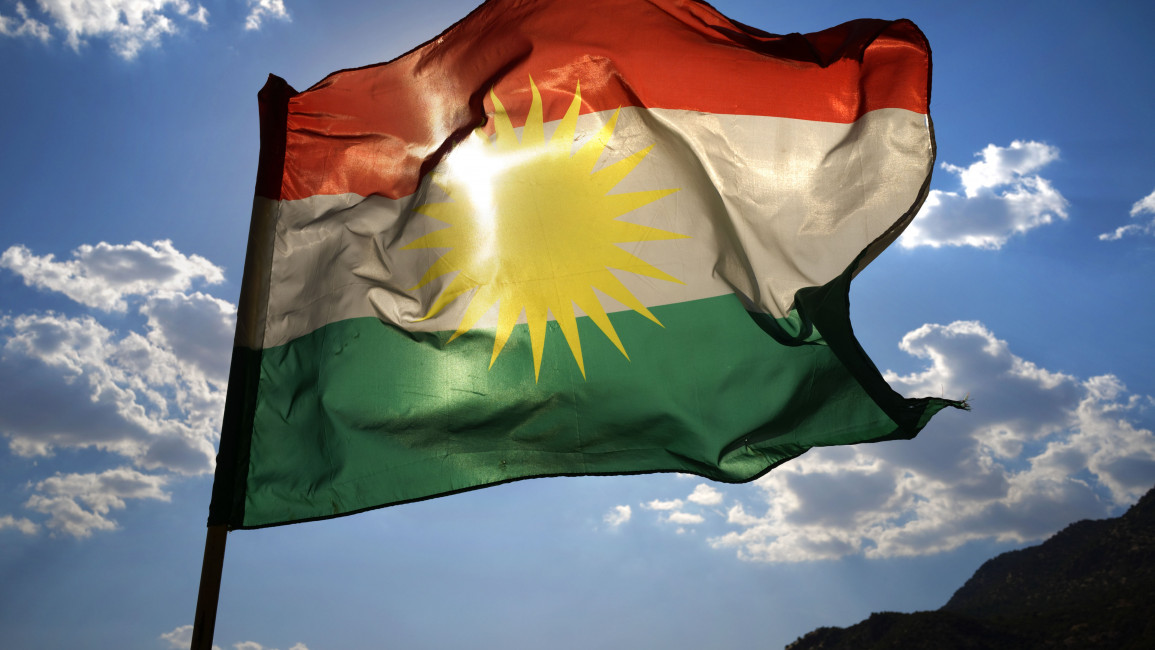Conflict deepens between KDP and PUK in northern Iraq
Conflicts are deepening between the two main ruling parties in the Iraqi Kurdistan Region (KRG), the Kurdistan Democratic Party (KDP) and the Patriotic Union of Kurdistan (PUK), after the former accused the latter of being behind the recent killing of a former counterterrorism officer in Erbil.
Hawkar Abdullah Rasoul, known as Hawkar Jaff, a former colonel in the ranks of PUK's Counter-Terrorism Group (CTG), was killed in the capital city of Erbil on 7 October after a sticky bomb, attached to his vehicle, detonated.
Jaff was supervising the CTG operations in Nineveh and was fired in the summer of 2021 due to an internal issue between cousins Bafel Talabani and Lahur Talabani - then co-leaders of PUK, as Jaff was a close ally to Lahur.
Kurdistan Region Security Council (KRSC), a body controlled by the KDP, on 12 October aired alleged confessions of six suspects in the killing. The KRSC claimed that the "terrorist explosion" was "conducted by a team of CTG-Sulaymaniyah and by direct orders from the head of CTG Wahab Majid Baqi, known as Wahab Halabjayi, and CTG head of intelligence Karzan Muhammad Rasheed."
Accordingly, an Erbil court has issued arrest warrants against Halabjayi, Rasheed, and senior PUK officials. The CTG denied any involvement in the killing of Jaff.
Context:
— Renwar Najm (@RenwarNajm) November 1, 2022
Last week PUK's forces raided Azhi Amin's houses in Slemani (Azhi has four wives); in response, Azhi surrounded Qubad Talabani's house in Erbil with his militia. Soon after, Nechirvan Barzani intervened and calmed down the tensions; both sides withdrew their forces. https://t.co/98I99GiONV
The KDP, which controls the Kurdish government in Erbil, and the PUK, which dominates areas along the Iranian border and is headquartered in Sulaimaniya, are the two main parties ruling the Iraqi Kurdish region.
Both parties have their separate peshmerga forces, security and intelligence agencies. They fought an internal conflict from 1994 until 1998, in which thousands of fighters and innocent civilians from both sides were killed, wounded and displaced.
Qubad Talabani, the deputy prime minister in the Kurdistan Regional Government (KRG), boycotted last Wednesday's regular meetings of the KRG's Council of Ministers headed by PM Masrour Barzani, son of Masoud Barzani-the KDP president.
The New Arab contacted Samir Hawrami, a spokesperson of Talabani, as well as Soran Jamal Tahir, PUK's formal spokesperson but both were not immediately available to clarify the reasons behind Talabani's boycotting the meeting.
Sheikh Jaafer Sheikh Mustafa, a PUK veteran and deputy of the Kurdistan region president, in an interview with his party's Kurdsat satellite channel, said that relations between both parties deteriorated as an unknown force has recently embargoed Qubad Talabani's house in Erbil.
He also stressed that both parties cut all communications with each other and that the current situation is the worst since the civil war between both sides, accusing the KDP of pushing PUK towards declaring a separate administration in Sulaymaniyah or fighting another round of civil unrest.
Soon after, the KDP politburo denounced Mustafa's allegations, accusing PUK of creating chaos in the Kurdistan region so that the KDP and the KRG might "cover-up" the PUK's involvement in the crime of assassinating Jaff.
"The conflicts between both parties culminated from each party's resolve to weaken the other and protect their interests," Osman Gulpi, a Kurdish political observer, told TNA.
"I rule out these conflicts leading to armed clashes between both parties. However, I would predict they would eventually split the KRG into two different administrations, one in Erbil run by the KDP and the other in Sulaimaniyah controlled by the PUK," Gulpi added.
He also pointed out that in such a scenario of dividing the IKR into two separate zones, each party would establish an authoritarian system, carry out proxy wars for the interest of the neighbouring countries, and diminish democratic institutions and fair elections in the region.



